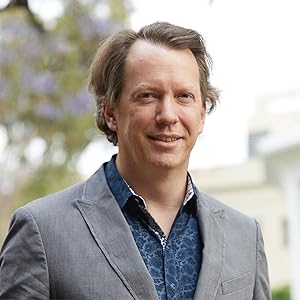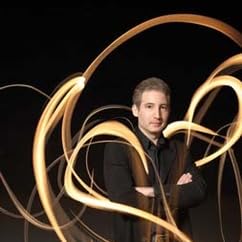Lawrence M. Krauss
关于作者
I was born in New York City and shortly afterward moved to Toronto, spending my childhood in Canada. I received undergraduate degrees in mathematics and physics from Carleton University in Ottawa Canada, and my Ph.D. from the Massachusetts Institute of Technology in 1982. After three year a stint in the Harvard Society of Fellows, I was a professor at Yale University for eight years and then, when I was 38 I moved to become Ambrose Swasey Professor of Physics, professor of astronomy, and Chairman of the Physics Department at Case Western Reserve University. Since then I have held endowed positions at a variety of Universities around the world in departments ranging from physics and astronomy, to earth and space exploration.I retired from academia in 2019 at age 65 when I became President of The Origins Project Foundation, (www.originsprojectfoundation.org) and independent non-profit foundation furthering the public understanding of science, and enhancing connections between science and culture. In the same year I became host of The Origins Podcast with Lawrence M. Krauss (www.theoriginspodcast.com), where I have extended video dialogues with the most interesting people in the world. My research focuses on the beginning and end of the Universe. Among my contributions to the field of cosmology, I helped lead the search for dark matter, and proposed the existence of dark energy in 1995, three years before its observational discovery, which received the Nobel Prize in 2011. I write regularly for national media, including The New York Times, The New Yorker, the Wall St. Journal, The Globe and Mail, The National Post, Quillette, Prospect, and other magazines, as well as doing extensive work on radio and television and most recently in feature films. I am strongly committed to public understanding of science, and have helped lead the national effort to preserve sound science teaching, including the teaching of evolution, for which I was awarded the National Science Board's Award for the Public Understanding of Science. I also served on Barack Obama's 2008 Presidential campaign science policy committee. I was honored to be Chair of the Board of Sponsors of the Bulletin of the Atomic Scientists from 2006-2018, and from 2010-2019 was on the Board of Directors of the Federation of American Scientists. I became a scientist in part because I read books by other scientists, such as Albert Einstein, George Gamow, Sir James Jeans, etc, when I was a child, and was inspired meeting various scientist-heroes including Richard Feynman and my popular writing returns the favor. One of my greatest joys is when a young person comes up to me and tells me that one of my books motivated them to become a scientist. I believe science is not only a vital part of our culture, but is fun, and I try and convey that in my books and lectures. I am honored that Scientific American referred to me as a rare scientific public intellectual, and that all three three major US Physics Societies: the American Physical Society, the American Association of Physics Teachers, and the American Institute of Physics, have seen fit to honor me with their highest awards for research and writing. I have now written 12 popular books on various aspects of science and culture, including the two New York Times Bestsellers, The Physics of Star Trek, and A Universe from Nothing. These two books sold over 500,000 copies in English alone and the latter was translated into 25 languages. My last book, The Physics of Climate Change, was published in March 2021. I wrote it during the pandemic, when I was able to take time to fully immerse myself in updating my knowledge of climate science and trying to translate it into popular language. This book cuts through the confusion by succinctly presenting the underlying science of climate change. It presents the underlying science behind climate change, free of political bias, or jargon so that all readers can understand one of the most important issues of our time, and allows laypeople to assess which climate predictions are firmest and which are more speculative . A departure from much of the focus of my previous books, it addresses a timely issue that should impact on the basis of ongoing public policy. My newest book, The Edge of Knowledge: Unsolved Mysteries of the Cosmos (in the UK it is entitled The Known Unknowns: The Unsolved Mysteries of the Cosmos) is a roller coaster ride taking us to the limits of what we know, and more importantly, what we know we don't know about the Universe. Divided into 5 sections: Time, Space, Matter, Life, and Consciousness, it takes the greatest unsolved problems in science. It is a celebration of how far we have come in understanding the universe, while providing an invitation to the next generation of young people to take up the challenge. The Universe continues to surprise us, but it will only do that if we keep asking questions, and keep exploring it. The rewards are ultimately a better understanding of our own place in the cosmos, including where we came from, and where we are heading. When not writing or doing research or relaxing at home with my family, I love to mountain bike, fly fish, and scuba dive. You can find more about my research, my activities, and my opinions on my substack site Critical Mass at LawrenceKrauss.substack.com or web page lawrencemkrauss.com or on my twitter feed @Lkrauss1 or at https://wakelet.com/@LawrenceKrauss
阅读完整简历















